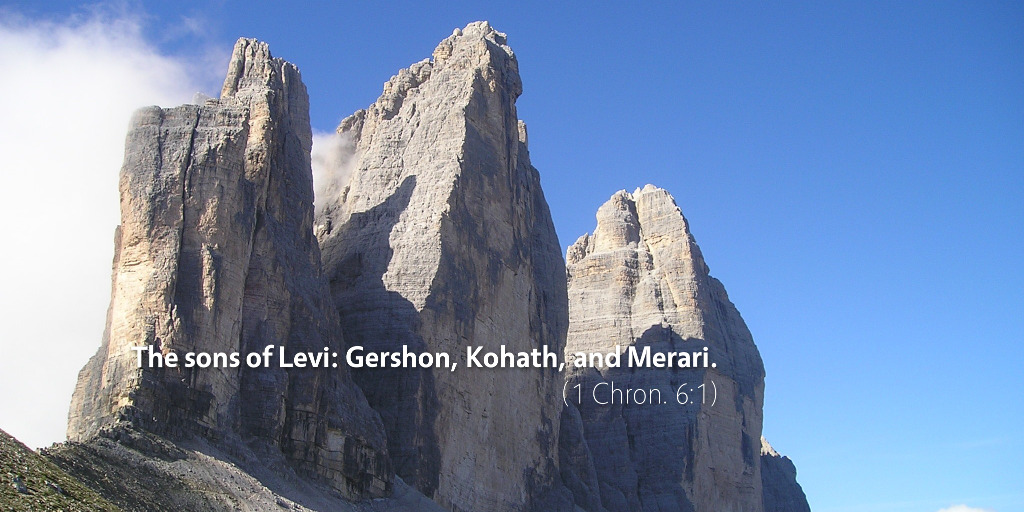Bible Readings for November 15th
1 Chronicles 5–6 | Hebrews 10 | Amos 4 | Psalms 148, 149 & 150
A central focal point of the books of Chronicles is the reestablishment of true worship in Israel. So, where most of the tribes of Israel get only a handful of verses to recount their genealogies, the tribe of Levi receives an entire chapter to recount its lineages in 1 Chronicles 6. But again, the way the Chronicler retells the story of Levi both emphasizes what we have already read and reshapes that story in significant, surprising ways.
Many elements in 1 Chronicles 6, then, are simply mentioned in passing to remind us of some aspect of the Levites that Moses established back in the first five books of the Bible. Still, we are reminded here of the three major clans in the tribe of Levi: Gershon, Kohath, and Merari (1 Chron. 6:1, 16, 61–81). Furthermore, we read a brief summary about the sacrificial system in 1 Chronicles 6:49: “But Aaron and his sons made offerings on the altar of burnt offering and on the altar of incense for all the work of the Most Holy Place, and to make atonement for Israel, according to all that Moses the servant of God had commanded.” Then, over the next four verses in 1 Chronicles 6:50–53, we read about the sons of Aaron who carried on the work of offering sacrifices from generation to generation.
And yet, the Levites who served as musicians in the house of Yahweh garner far more attention in this chapter, taking up eighteen verses in 1 Chronicles 6:31–48—and all this despite the fact that we have read nothing up to this point about musicians among the Levites. Why, then, the sudden emphasis here? The answer is simple: David. Although we read nothing about it in 1 and 2 Samuel, we read extensively in 1 Chronicles about the ways that David restructures the roles of the Levites: “These are the men whom David put in charge of the service of song in the house of the LORD after the ark rested there” (1 Chron. 6:31). We read very little about the way Moses shaped the duties of the Levites in worship here in Chronicles, but we will read more and more about the way David reshapes it.
The point, though, is not to surface interesting historical tidbits that were not included in 1 and 2 Samuel. Rather, the point is to present a picture of David that will foreshadow what the greater Son of David will eventually become. That new, ultimate David will transform the worship of Yahweh’s people as he establishes his kingdom forever on this earth—even more dramatically than Moses had done. We will read much more about the worship reforms of David, but this element regarding the Levites uses a re-telling of the first David’s history to set up a much more sweeping picture of the new David to come.
Podcast: Play in new window | Download (4.6MB) | Embed
Subscribe: Apple Podcasts | RSS | More

Scripture quotations are from The Holy Bible, English Standard Version copyright © 2001 by Crossway Bibles, a division of Good News Publishers. Used by permission. All rights reserved.


